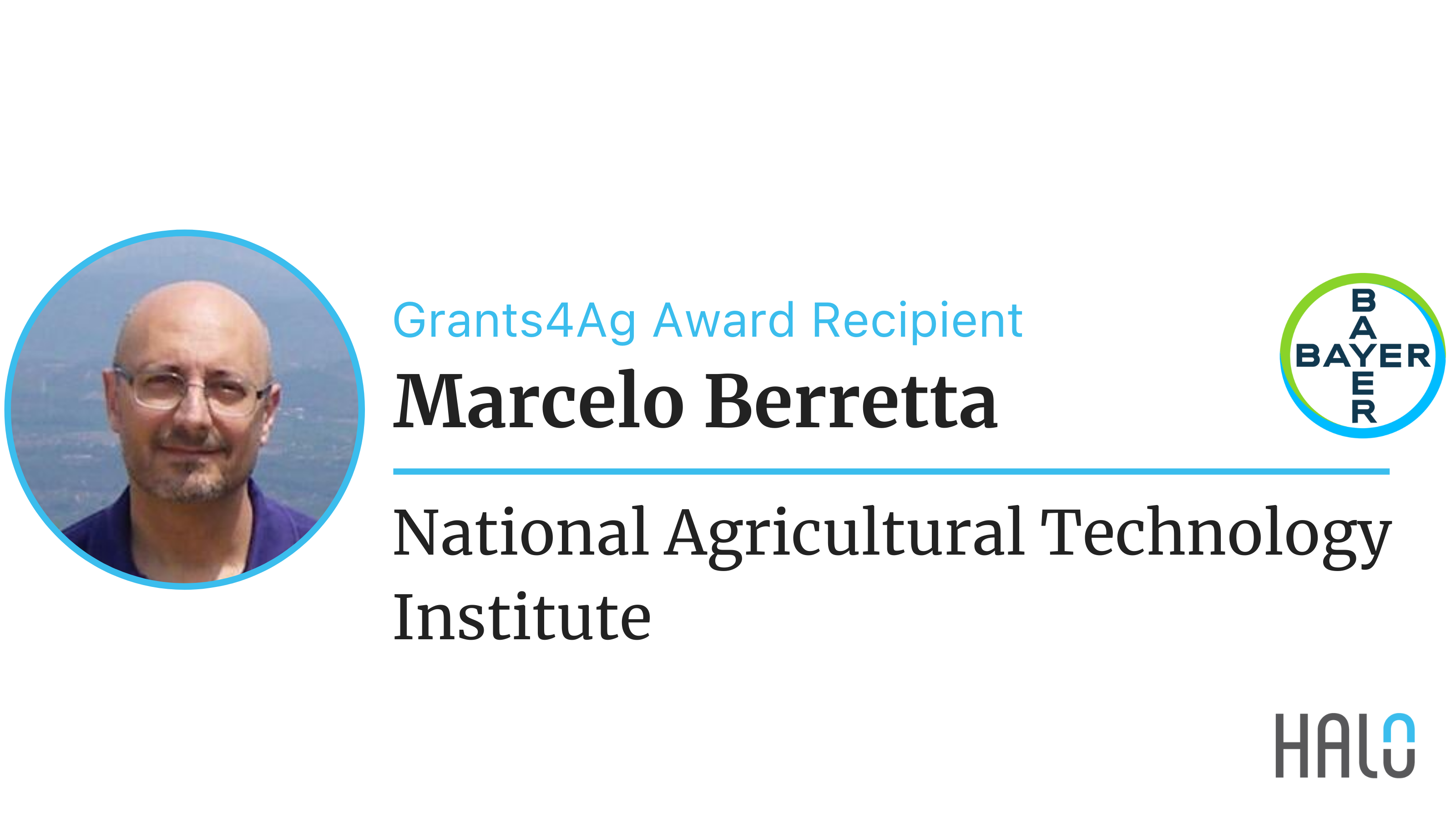As its name suggests, the cotton boll weevil is a scourge to cotton, but Dr. Marcelo Berretta is exploring how to defeat the pest with directed evolution. Through his research on toxic proteins, Dr. Berretta sees a future in creating cotton resistant to the pest. View Halo Profile >>
Tell us about your research.
The cotton boll weevil, Anthonomus grandis, is among the most harmful pests of cotton in the Americas. Our project is aimed to generate novel Bt Cry proteins toxic to A. grandis, using a strategy of directed evolution. Ultimately, the genes coding these toxins could be used to obtain genetically modified cotton resistant to this pest. Native Cry genes will be modified to include sequences encoding peptide loops selected on the basis of their capacity to bind specifically to the midgut of the insect larva. We hypothesize that proteins with an increased binding ability will be more toxic to the insect.
We pursue the generation of novel proteins toxic to the cotton boll weevil that could be useful to obtain genetically modified cotton resistant to this pest.
Can you explain that to a non-scientist?
Over the past decades several crops were transformed to express resistance to insect pests through the introduction of genes of the bacterium Bacillus thuringiensis, which produces proteins, known as Cry proteins, with insecticidal activity to certain insect species. Insects with low or no susceptibility to naturally occurring Cry proteins could be targeted by modified variants. We pursue the generation of novel proteins toxic to the cotton boll weevil that could be useful to obtain genetically modified cotton resistant to this pest.
Why did you choose this area of research?
The pathogenic relationships between microorganisms and insects comprise a variety of mechanisms that can be exploited to develop biotechnological tools and strategies useful for the biocontrol of agricultural pests. Understanding the molecular basis of those mechanisms opens the possibility to engineer biomolecules to perform as insecticides to specific target species while being safe for both the environment and non-target organisms.
Understanding the molecular basis of those mechanisms opens the possibility to engineer biomolecules to perform as insecticides to specific target species while being safe for both the environment and non-target organisms.
How could your Grants4Ag project someday impact #healthforall #hungerfornone?
Modern agriculture requires sustainable practices that guarantee productivity while avoiding the contamination of the environment and preserving the health of producers and consumers. With regard to insect pests there is a real need to reduce the use of chemical insecticides. In this sense, this research faces the challenge to develop new tools for integrated crop management systems that create value to ensure health of our society.


